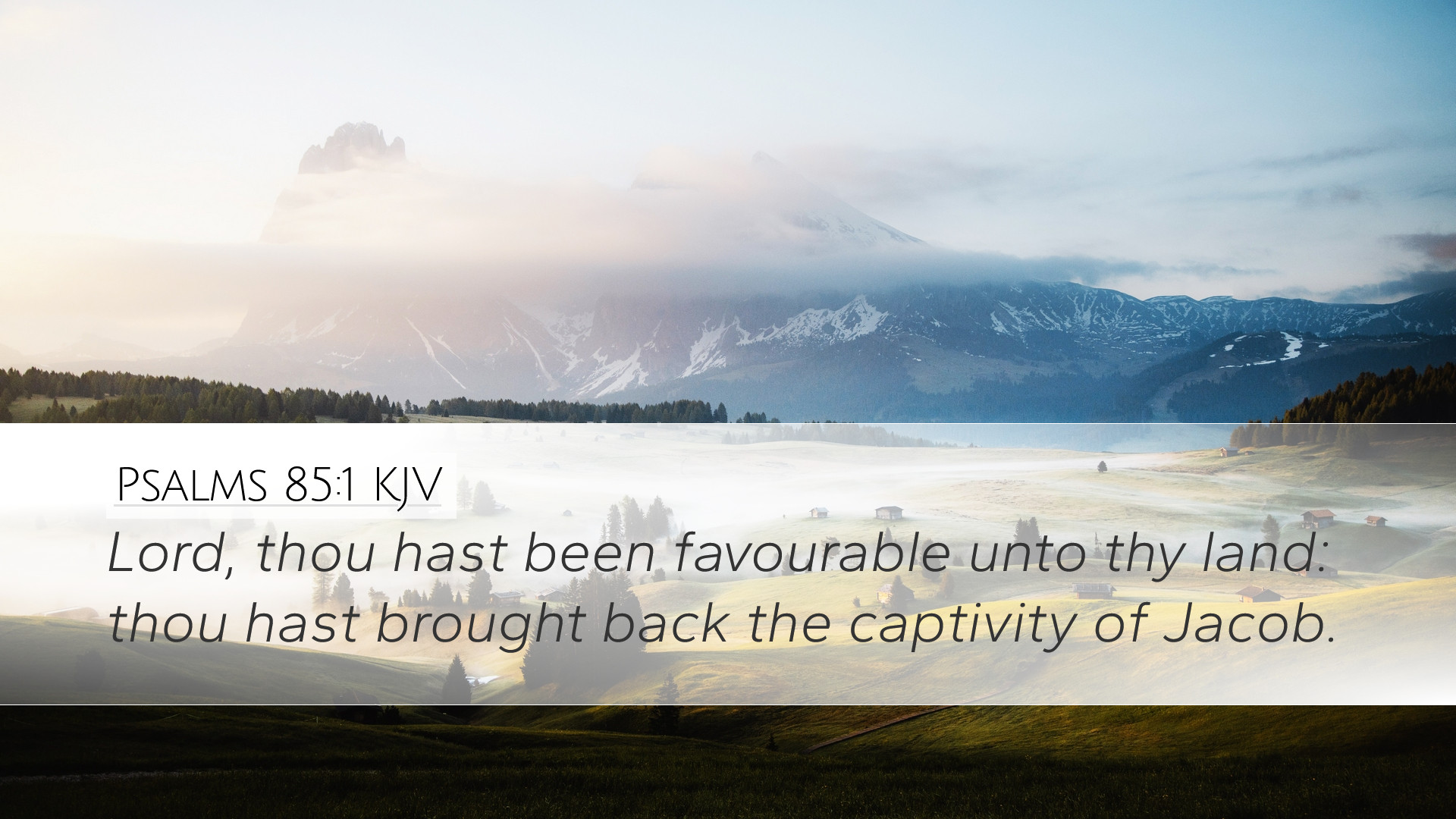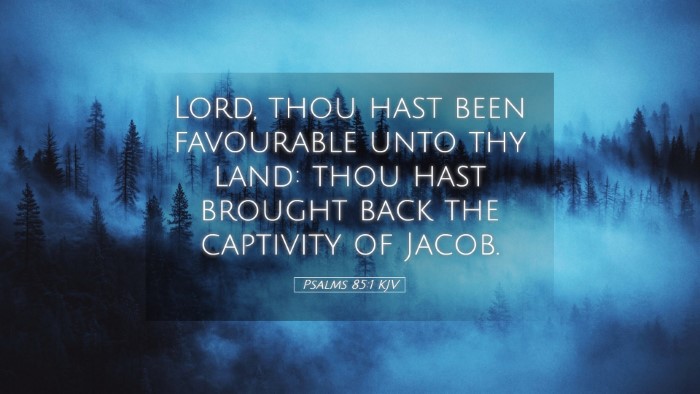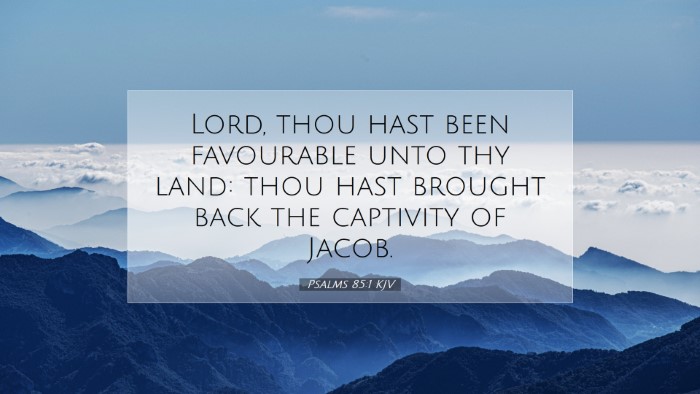Psalms 85:1 - Commentary Summary
Verse: "Lord, thou hast been favorable unto thy land: thou hast brought back the captivity of Jacob."
Introduction
The verse from Psalms 85:1 serves as an opening plea that reflects a deep yearning for restoration and divine favor. This Psalm is traditionally attributed to the sons of Korah and is often associated with Israel's return from Babylonian exile. The themes of divine mercy, territorial restoration, and national rejuvenation are prominent in the reflections of public domain commentaries.
Interpretation of the Verse
This verse encapsulates both gratitude and supplication, indicating that God has shown favor to His people and has initiated a process of bringing them back from captivity. It highlights the importance of acknowledging God’s benevolence in times of distress.
Historical Context
Understanding the historical context is critical for interpretation:
- The Israelites had faced multiple occasions of captivity and oppression, most notably during their Babylonian exile.
- This Psalm resonates with the collective memory of restoration and the hope for God's continued favor upon the land.
Theological Implications
The theological implications are profound. The Psalmist not only recounts past blessings, but there is an underlying expectation of God’s continued grace.
- Divine Favor: The notion of God's favor is a recurring theme in the Scriptures, illustrating His willingness to show compassion and mercy.
- Restoration: Reflects a promise of restoration, which can be applied spiritually as well as physically to the nation and its people.
Commentary Insights
Matthew Henry's Commentary
Matthew Henry emphasizes the glorious nature of God’s mercy. He states that the restoration of Israel from captivity represents not just physical liberation, but also spiritual revival. Henry elaborates that when God's people acknowledge His past favors, it establishes a foundation for future hopes, as gratitude opens the heart to receive further grace.
Albert Barnes' Notes on the Bible
Albert Barnes focuses on the covenant faithfulness of God, explaining that the return of the captives of Jacob signifies not merely an end to physical oppression but the reestablishment of their identity as God's chosen people. He notes that Israel's history is filled with examples of both divine discipline and restoration, which leads believers to trust in God’s continual engagement in history.
Adam Clarke’s Commentary
Adam Clarke highlights the emotional intensity behind the plea. He states that the acknowledgment of God’s past blessings serves as a powerful reminder of His capability to restore. Clarke emphasizes that understanding the context of previous misfortunes is crucial for experiencing God’s grace and looking forward with hope. His commentary encourages believers to reflect on their lives and the ways God has worked miracles in their situations.
Application for Today
For pastors, students, theologians, and Bible scholars, Psalm 85:1 offers profound insights into the nature of God’s relationship with His people. The acknowledgment of His past goodness encourages contemporary believers to express gratitude and foster a spirit of hope amidst challenges.
Principles to Consider:
- Gratitude: Regularly reflecting on God’s past provisions and mercies can strengthen faith.
- Corporate Confession: Community worship and recognition of past divine acts can unify congregations in hope.
- Expectation: Just as the psalmist looks towards further deliverance, today's believers are invited to expect restoration in various facets of life.
Conclusion
Psalms 85:1 is a powerful reminder of God’s faithfulness and the hope that springs from His past actions. The insights drawn from various commentaries enrich our understanding and application of this Scripture, encouraging us to recognize and celebrate God’s ever-present favor in our lives and communities. As we ponder this verse, may it inspire us to seek further intimacy with God, longing for personal and community revitalization.


